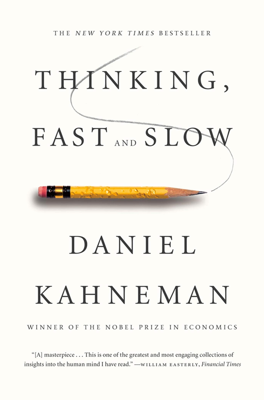The Illusion of Validity
The Illusion of Validity
Overview of the Illusion of Validity - System 1 is prone to see clear patterns and make confident judgments from minimal evidence due to the principle of What You See Is All There Is (WYSIATI). This lends a false sense of coherence and confidence to judgments despite the lack of substantial evidence or reliable predictability.
Military Evaluations and Misplaced Confidence - Kahneman illustrates the illusion of validity by recalling his experiences in the Israeli military, where he helped evaluate officer candidates. In a challenging leaderless group task, evaluators felt confident assessing candidates' leadership abilities. However, subsequent performance feedback revealed these assessments were poor predictors of actual leadership effectiveness, demonstrating the minimal predictability and the persistent overconfidence in their evaluations.
Stock Market and the Illusion of Skill
- The stock market serves as another example where professionals and amateurs alike believe they can predict stock movements, despite an economic theory suggesting perfect market pricing, which should make individual predictions futile. Kahneman highlights how the illusion persists even when faced with statistical evidence showing that consistent success in stock picking is predominantly due to luck rather than skill.
Financial Advisers and Persistent Illusions - An analysis of financial advisers' performance over eight years showed zero correlation year-to-year in their ability to predict stock performance, reinforcing that successes were based more on chance than skill. Despite this clear evidence, there was no significant change in how the firm rewarded its advisers, continuing to compensate based on perceived performance success.
Insights into Expert Predictions
- The belief in skill and validity persists widely among experts across fields. Philip Tetlock's study noted that expert predictions generally fare worse than simple algorithmic models. Experts tend to give explanations and modify their predictions post-facto to fit observed outcomes, rarely admitting to predictive failures outright.
Cognitive Roots of the Error - The illusion of skill and predictive validity is sustained by: 1. System 1's orientation: Quick, associative thinking that builds coherent narratives from available information, often disregarding its quality or relevance. 2. Professional culture: Environments that foster and reinforce overconfidence, especially when careers and reputations are built on perceived expertise. 3. Public perception: Media and industry amplify the voices of 'experts' who assert confident forecasts, reinforcing public overconfidence in these predictions.
Conclusion on Predictability and Skill - Kahneman concludes that while certain short-term predictions and behavior patterns can be moderately forecasted, long-term predictions often fall into the realm of unpredictability. He challenges the reliance on expert opinion for navigating futures or phenomena that inherently hold high degrees of uncertainty and complexity.
